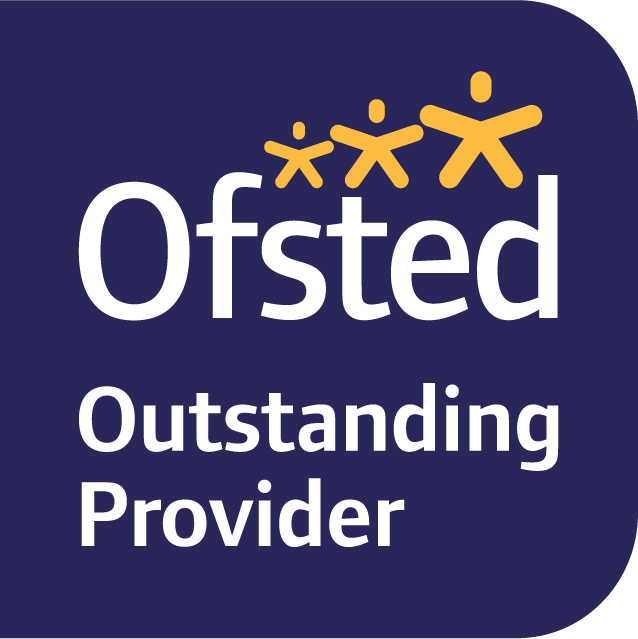How we keep children safe
The children's safety and wellbeing are the most important things in our schools.
Everyone has an active role in protecting the children from harm. Everyone means:
- all staff,
- governors,
- parents, carers,
- contractors,
- students,
- volunteers, and
- visitors.
On this page:
- What we do to keep children safe
- Our practice
- How all visitors can help
- What we do if we have a concern about a child
- What to do if you have a concern about a child
What we do to keep children safe
- We check that everyone who works here is OK to work with children. We do this before they start by doing a DBS check. Read what that means on the DBS pages of the government website. We do this for:
- all staff,
- students, and
- regular volunteers.
- We do regular safeguarding training. This means staff know how to recognise and how to raise any concerns. This might be about children. It might also be about other staff members, students, or volunteers. It can also be about working practices.
- We display photos of all staff. The staff board says who leads safeguarding and child protection.
- All staff have regular training in paediatric first aid. We display photos of the staff who have extended First Aid training.
- All staff have food hygiene training. We often update this for staff who are cooking hot food, or recording temperatures. Hygiene certificates don't run out, but good practice says to do refresher training. This is what the Food Standards Agency suggests.
Sharing what we do
- When all visitors sign in, we give them a Safeguarding leaflet. The leaflet explains what they can do to keep children safe in our schools. Staff ask visitors and contractors to read it on the website before they come. We email it to new parents as part of their induction.
- We make mistakes. We ask people to tell us when we do. That way, we learn.
- All students and volunteers have an induction which explains:
- our safeguarding procedure,
- the code of conduct, and
- health and safety procedures.
- Experienced staff mentor students and volunteers.
- Sometimes a child leaves us to go to a new setting. The records of any safeguarding concerns and social worker involvement go too. We do this within 5 days of the child moving. This is in line with Keeping Children Safe in Education (KCSiE).
Our practice
- How we manage behaviour is a big part of our safeguarding. We expect children to speak up. We teach them to expect to be heard. We ask children to always ‘tell’ if someone hurts or is unkind to them.
- There is an under-reporting of Child Protection (CP) for children with disabilities. We are aware that these children may not be able to tell us.
- Sometimes a child tells us something we have to share to keep them safe. We tell them we will do this.
- Sometimes a child on the Child Protection Register moves school. Their records go too. The Designated Safeguarding Lead uses My Concern to send them securely. She sends them under confidential cover via a password-protected file.
- Sometimes we send digital information outside the London Grid for Learning. We use ‘egress switch’ to send it securely.
- We keep a folder of low-level concerns about staff. This is in line with KCSiE. Our safeguarding governor visits each term. At each visit he checks:
- this folder of low-level concerns,
- the Single Central Record, and
- the online safety filters.
The children
- We record the accidents and injuries that happen in the schools.
- Sometimes staff or volunteers notice an injury when a child arrives. Sometimes during the session staff notice an injury that didn’t occur in the session. The staff record this, and discuss it with the child’s parent or carer. We also record changes in how a child behaves. We record regular patterns of injury on My Concern. If needed, we share these records with other agencies.
- We keep a record of other concerns about children on My Concern. All staff who work directly with children have access to this portal. We store paperwork for Child in Need and Child Protection children on this portal. This way we can transfer it easily to their new school when they leave.
- Sometimes a child discloses an allegation about a member of staff. The DSL reports this to the Local Authority Designated Officer (LADO) at once. She does this before she investigates. She records all the LADO’s advice and the LADO's report on My Concern. She shares these concerns with our safeguarding governor as they are happening. She shares the outcome of the investigation with him after its closure.
- We keep close track of nappy changing. We never change children in a totally enclosed private area. Only members of staff change nappies and clothes.
- Children always have access to drinking water.
- In hot weather we ask permission to use nursery sun cream. We help the children to apply it. We ask daycare families to send in sun cream for children with allergies. We text families to apply sun cream before they head out. On hot days we make children wear hats to play outside.
The premises
- All visitors sign in and sign out. This way we know exactly who is on the premises and why.
- Staff check the premises every day. They put things right if they are dangerous. This helps keep everyone safe. We check equipment regularly. This includes electrical equipment. These checks tell us when we need to fix things that don’t look broken.
- We test our Fire Alarms regularly. We hold fire drills at least termly.
e-safety
- Anyone working in the schools can only use a mobile phone:
- in the staff room and
- when they are on a break.
- We use CCTV to record our reception areas.
- We take children’s photos only:
- when they agree at the time, and
- when their parents or carers have given us written consent.
- Children hardly ever go online in our schools. When they do, it’s only:
- for short amounts of time,
- with adults present, and
- through a filter that blocks unsafe sites.
- Our School Business Manager and our IT consultant often check our schools’ internet filters. They report these checks to our safeguarding governor on his termly visit.
How all visitors can help
We ask all visitors to read our Safeguarding leaflet when they sign in. The leaflet says:
- what to do when they arrive, while in school and when they leave,
- what to do if they have a concern,
- how to keep safe and comfy in school,
- what to do in emergency.
There are different leaflets for each school. You can read them on our page of information for visitors.
What we do if we have a concern about a child
We believe that a concern is not an accusation. When we have a concern about a child, this is what we do. We call this “child protection”:
- We talk to you (if the child is yours).
- In some cases we ask for advice from the MASH team. MASH stands for “Multi Agency Safeguarding Hub”.
- We record the concern on My Concern.
- We put support in place.
- We follow up concerns later. We do this to make sure the support has done what we all wanted.
We only share this information with the staff who work directly with the child.
What to do if you have a concern about a child
When the concern is about your child:
- talk to your key person.
When it’s about another child:
- talk to the Designated Safeguarding Lead: Helen Currie (Executive Headteacher), or
at Church Hill:
- talk to a Deputy Designated Safeguarding Leader:
- Pat English or Lindsay Read (in term time)
- Sarah Davies (at After School Club or in Playscheme)
at Low Hall:
- talk to a Deputy Designated Safeguarding Leader:
- Nalinee Sabarche or Lindsay Read (in term time)
- Uzma Hanif (at After School Club)
- Sarah Davies (during Playscheme at Church Hill)
When your concern is about a member of staff, a student, or a volunteer:
- talk to Helen Currie
When your concern is about a Senior Teacher:
- talk to Helen Currie
When your concern is about the Executive Headteacher:
- talk to Abrar Malik, Chair of Governors
Helen Currie or Abrar Malik will follow this up by asking the LADO for advice.
When your concern is about the Chair of Governors:
- call 020 8496 3206. Ask to talk to the Divisional Director of Children and Families at LBWF.
When you can't find who you are looking for:
- There are photos of all staff on the way into each school. When you can't find the right person, call and make an appointment:
- 020 8520 4919 (Church Hill)
- 020 8520 1689 (Low Hall).
When it’s outside of nursery hours:
- Do you feel a child or young person is about to get hurt? Call 999, ask for the Police and say you need immediate help.
- at any time: call 101.
- Is the risk is less urgent? Call the MASH team on 020 8496 2317.
When your concern is about any adult who works with children in Waltham Forest:
- contact the LADO. Call 020 8496 3646 or email LADO@walthamforest.gov.uk
- contact the NSPCC Whistleblowing Line. Call 0800 028 0285 or email help@nspcc.org.uk






